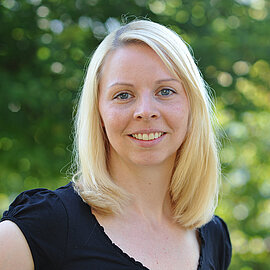For quite some time long-only index funds have been suspected of being responsible for price increases in agricultural futures markets. This prompted critics to derive the political demand for either dramatically restricting the scope of activities for such index funds or even totally prohibiting their engagement in agricultural futures markets by regulatory means. Several researchers at various universities and institutes, however, point out that such demands and their underlying diagnoses are contradictory to the current state of scientific knowledge. The recently published IAMO Policy Brief sheds light on the functioning of long-only index funds and their impact on agricultural futures markets.
To date, the empirically oriented literature has not provided conclusive evidence that long-only index funds with their futures transactions significantly have increased the level or volatility of agricultural commodity prices. Recent theoretical works also suggest that long-only index funds are not driving but rather stabilizing prices in agricultural commodity markets. They are fulfilling an important collateralization and competition function in agricultural futures markets. ‘Market entry of index funds reduces risk premiums and helps food producers to hedge themselves at lower costs in the agricultural futures market. Mitigated risk premiums motivate farmers to put larger parts of their harvests into storage, which counteracts seasonal supply and price fluctuations’, says agricultural economist Sören Prehn.
In order to safeguard sustainable global food supply, researchers warn against stricter market entry regulations for long-only index funds. Limitation of such index funds may impair functioning of the agricultural futures market. A prohibition would severely restrict liquidity and competition in agricultural futures markets. Currently there is no economic necessity to limit activities of long-only index funds in agricultural futures markets through intervention. ‘What is rather required against today’s background of demographic development, ever-scarcer resources, climate change and an increasing international division of labor are targeted and concerted efforts in order to permanently safeguard the global food supply. Limiting price hedging options for agricultural producers has no place in such efforts’, opines IAMO director Thomas Glauben.
The IAMO Policy Brief 12 ‘Index funds’ financial speculation with agricultural commodities: Functioning. Effects.’ describes functioning of agricultural futures markets and investment strategy of long-only index funds. This followed by a discussion of the influence of long-only index funds on price determination and market performance as well as implications for politics. This publication was financed from in-house funds and is available free of charge on the webpage at: http://www.iamo.de/fileadmin/documents/IAMOPolicyBrief12_en.pdf
Text: 3,077 characters (incl. spaces)
IAMO Policy Briefs
The publication series IAMO Policy Brief is published at irregular intervals and provides a platform for research findings and outcomes of the Institute of Agricultural Development in Central and Eastern Europe (IAMO) with social relevance to be communicated accessibly and entertainingly to a broad audience. Key target groups include political decision-makers, mass media representatives and the general public.
| Press Release 20/2013
Index funds’ financial speculation with agricultural commodities: Functioning. Effects.
IAMO Policy Brief 12 expounds state of academic knowledge
About IAMO
The Leibniz Institute of Agricultural Development in Transition Economies (IAMO) analyses economic, social and political processes of change in the agricultural and food sector, and in rural areas. The geographic focus covers the enlarging EU, transition regions of Central, Eastern and South Eastern Europe, as well as Central and Eastern Asia. IAMO works to enhance the understanding of institutional, structural and technological changes. Moreover, IAMO studies the resulting impacts on the agricultural and food sector as well as the living conditions of rural populations. The outcomes of our work are used to derive and analyse strategies and options for enterprises, agricultural markets and politics. Since its founding in 1994, IAMO has been part of the Leibniz Association, a German community of independent research institutes.
Leibniz Institute of Agricultural Development in Transition Economies (IAMO)
Theodor-Lieser-Str. 2
06120 Halle (Saale)
Germany
www.iamo.de/en
IAMO on Facebook: www.facebook.com/iamoLeibniz
IAMO on Twitter: https://twitter.com/iamoLeibniz
